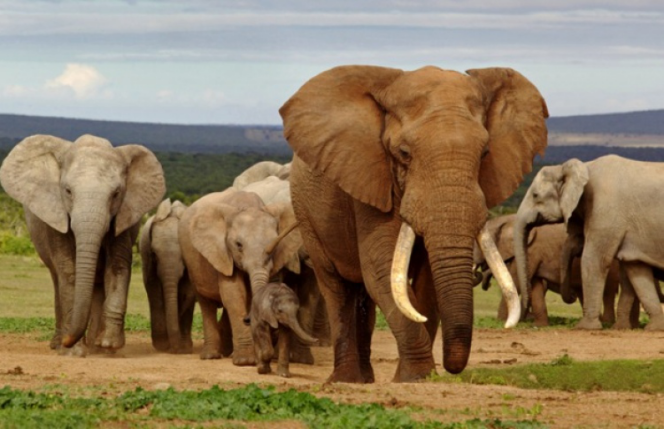第一学期转眼而逝,又到了返乡时节。在这个期末,Jonathan Koppell院长也为HAITC的同学们带来了他的新年祝福和对未来的展望。
It seems that this semester passed by just in a blink of an eye,and it is time for us to set foot on the way back. At the end of this semester, Dean Jonathan Koppell brings his New Year wishes and perspectives to HAITC students.
◆ Letter from Dean Jonathan Koppell ◆
Dear HAITC students–
Happy New Year and congratulations on completing your first semester of College!
I hope you are doing well with the first-year curriculum. We know the transition to college is not always easy so do not be afraid to ask for help if you need it.
One thing that makes it easier to remain motivated to complete difficult assignments is to keep thinking about the substantive issues at the heart of HAITC. Remember my lecture from the beginning of the school year? We talked about public goods and their importance in developing and maintaining a tourism economy.
One example in particular was the danger to tourism based on hunting if poachers destroy the population of elephants. I saw the attached article in China Daily and wanted you to see it. This is the reality of international tourism management. Leaders running hotels, tour companies, and airlines must always think about public goods or their business will disappear!
These are the types of problems you are preparing to solve.
I look forward to our next visit together.
Sincerely,
Jonathan Koppell
Dean, Watts College of Public Service and Community Solutions, Arizona State University
The following article is what Dean Jonathan Koppell wants to share with us.
African tourism alarmed by rhino, elephant losses

Animal conservation in Africa has suffered several setbacks in recent months prompting experts at an African tourism conference this week in Cape Town to warn about the cost to the travel industry.
"Obviously it's negative," said the African Tourism Association's (ATA) managing director Naledi Khabo, who spoke at the inaugural event organised by Airbnb.
"Whether it's people or animals, you see them being killed or slaughtered in such a terrible manner -- it has a negative impact."
Kenya was thrust into the conservation spotlight when an effort to move endangered black rhinos between national parks, launched with great fanfare in June, left 11 of the animals dead.
"It's very clear it was not managed well by my officers -- and we took action on that," said Kenya's Tourism Minister Najib Balala, who was the public face of the project.
Balala insisted that tourists considering visiting would not be deterred by the incident but industry experts have warned that such setbacks could hurt the continent's appeal.
"It does impact the overall pan-African perception as well, which in turn has a negative impact on tourism," added Khabo.
The cost of environmental crime to developing countries is estimated to be more than $70 billion a year.
Africa is at the epicentre of global poaching and trafficking of many species, with elephants coveted for their ivory tusks and rhinos sought for their horns which are used in traditional Asian medicine.
1/ 'A very aggressive approach'
Botswana, which has Africa's largest elephant population, is on the frontline of the battle against the illicit ivory trade.
But it was recently rocked by a report from Elephants Without Borders that a poaching spree had wiped out as many as 90 of the animals.
While the government and some scientists strongly disputed the findings and insisted they were overstated, the damage had already been done.
"What is sad, particularly about the Botswana incident, is that the headlines came out about what happened -- but what we don't understand is why and what next," said travel author Anita Mendiratta.
In South Africa, rangers have been forced to take ever more extreme steps to protect the country's safari endowment alongside an effort to prosecute the criminal bigwigs profiting from the lucrative trade.
Khabo, who speaks for the African tourism industry, praised South Africa's anti-poaching successes which have included three high-profile arrests of kingpins linked to poaching.
"It's critical that, on a policy level, the government and the tourism boards take a very aggressive approach and to have truly severe consequences to individuals who are found guilty," she told AFP.
Balala, the Kenyan tourism minister, said his country's anti-poaching efforts were also proving effective.
"The numbers of rhinos in terms of protection has gone up -- over 1,200 rhinos we have in Kenya from almost 300 30 years ago. We have 35,000 elephants, 30 years ago we had only 16,000."
2/ 'Traveller activism'
Mendiratta said that effective anti-poaching was increasingly being demanded by tourists.
"When it comes to poaching, when it comes to elephant riding even, travellers are saying 'it's not right'," she said.
"Traveller activism has become an important part of our industry."
Loserian Laizer, who spent nine years as a ranger in Tanzania before joining the Safarisource service which connects travellers directly to safari organisers, said poaching can make wildlife tourism difficult.
In South Africa's Kruger National Park for example, visitors have complained about the noise made by the increasing number of airborne anti-poaching patrols.
"But I can say we are winning the fight against poaching," said Laizer. "There's a big up turn in people understanding we need to protect the wildlife."
Tanzania was working to educate visitors about the perils of poaching and the risks of purchasing ivory and rhino horn products, he said.
Laizer said the threat to wildlife and the impact on the tourism industry did not just come from poaching or conservation blunders.
"A problem is people trying to build many facilities to accommodate the tourists and the impact is we are destroying the environment so we need to control that," he said.
—— Cape Town, South Africa | Africa
With the blessing of Dean Koppell, let's make persistent efforts in the next semester and add more highlights to our college life!
在Koppell院长的祝福下,让我们在下学期再接再厉,为我们的大学生活增添更多精彩!
Jonathan Koppell院长来信参考译文
亲爱的HAITC的同学们:
新年快乐!祝贺你完成了大学的首个学期!
希望同学们在第一年的课程中都有不错的表现。我们知道向大学生活过渡的过程并不总是那么轻松,所以如果你需要帮助和支持,不用犹豫也不需要担忧,每一位老师都会乐于提供帮助。
在面对各种让你感到苦恼的作业时,有一件事可以让你持续保持学习的动力,那就是:不断思考HAITC要解决的实质性核心问题。还记得我在开学时的演讲吗?我们谈到了公众产品及其在维持和发展旅游经济中的重要作用。
其中我特别提到了一个例子,那就是如果偷猎者破坏了大象原有的数量,那些基于狩猎而发展的旅游业就会面临危机。随信附上的一篇文章,是我在《中国日报》上读到的,也想分享给大家。这就是国际旅游的一个现状。那些经营酒店、旅游公司以及航空公司的老板们必须要时刻思考着公共产品的问题,否则他们的产业将不复存在!
这些都是需要你们将来去解决的问题。
期待与同学们下一次的相聚!
此致诚挚地,
Jonathan Koppell